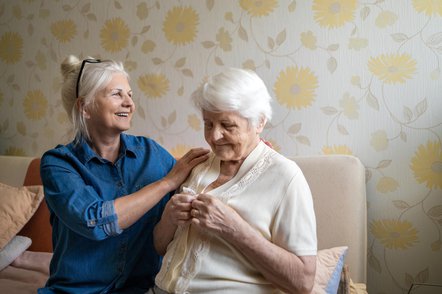
Being a caregiver to a person is one of the most delicate tasks of all time. It is easy for a caregiver to take up a "babying protective role" to someone. It is even more natural to want to help someone who is having difficulty handling their daily tasks. Unless the person has cognitive failure such as dementia, brain damage due to a stroke, or other health problems, you should let them make their own independent decisions about their lives.
Independence is one of the most desired human needs. It does not change when a person becomes ill or disabled, and it may grow even more. It can be difficult as a caregiver to watch a person struggle with a task or insist on doing it their way. This is just the same as watching your toddler try to do things themselves when you know better. Therefore, it is essential to strike a balance and avoid overprotection as this may drive a sense of belittling to the person you are taking care of, even if you are unaware of it.
You should acknowledge that you can offer better quality care and foster healthy and productive relationships if you respect a person's independence. Here are some of the ways to maintain independence as you provide care to a person:
3 ways to promote independence...
1. Respect Physical and Emotional Privacy
The same way you would want people to respect your boundaries is also equivalent to respecting your client's privacy. With this in mind, you should never forget that you are a caregiver, not a mother and child. Mutual respect creates a strong relationship for both parties to communicate openly and ensure that each concern is heard and addressed. Professionals from an affordable home care agency recommend these ways to maintain a client's privacy:
● Physical privacy- Closing the door or curtains when helping the client dress up adequately or during a bath and knocking before entering a closed door. Also, ensure minimum clothing is removed during a procedure and ensure the rest of the body is covered by linen or attire.
● Possession privacy- Don't move through people's belongings without permission. Even when involved in cleaning, always ask them if they are okay with you moving their items.
● Information privacy- Avoiding open discussions on confidential information that concerns the client without permission.
Maintaining utmost privacy may be challenging depending on the type of client, but the more the caregiver strives at maintaining client privacy, the better the client feels.
2. Practice Patience and Encouragement
You, as a caregiver, are required to be encouraging to your client rather than pushy or impatient. Avoid handling everything yourself just because you can do it faster and more efficiently. You may mean well, but this often makes your client feel incapable of doing their things, leading to low self-esteem.
Encourage your client to do the things they can. These things would be like grabbing something from the cupboard or walking across the room unaided. If they can get up on their own, let them do so at their own pace. You can also engage your client in healthy social habits which promote independence like strength, flexibility, and gentle endurance exercises. This can be extremely rewarding, but do not force it.
3. Respect Their Right to Choices and Decision Making
When you decide on someone's behalf, you have a sense of control over their lives. If a choice seems silly to you, understand why it may be necessary to your client. Always listen and ask for opinions and let the client know they are important to you. You can also offer opinions on meals, when to eat, and what to wear if cognitive problems are present.
As a caregiver, you should let your client decide what to eat if they can. However, if a client makes dangerous choices such as refusing to take medication, try and negotiate for better solutions. You can offer pills with their favorite snacks, agree to give a bath when necessary, and provide a sense of companionship by taking walks with them occasionally.
Always ensure that your client lives in the highest levels of dignity, independence, and respect as much as possible. In short, maintaining client dignity trickles down to treating individuals the way you would want to be treated.
Are you looking for a care provider for your loved one? Please get in touch for complimentary support
Call us on 01865 638018
Send message

